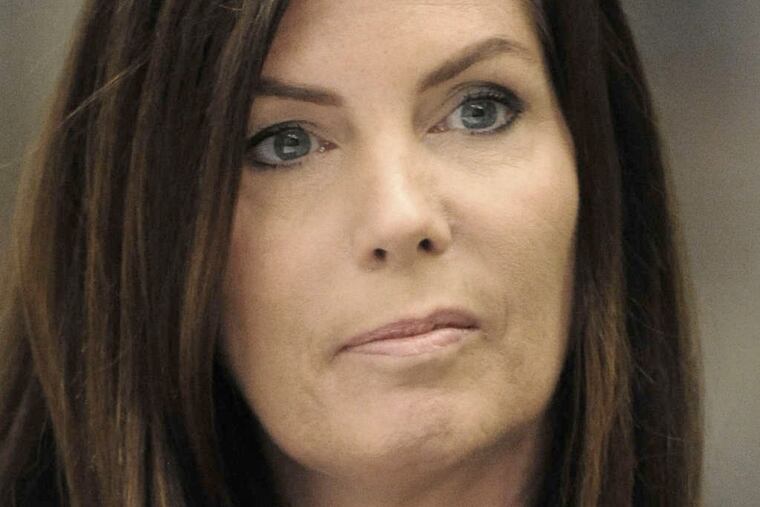Pa.'s odd special-prosecutor process
HARRISBURG - Any day now, a grand jury could render an opinion on whether Attorney General Kathleen G. Kane or anyone in her office should face charges for allegedly breaching secrecy laws.

HARRISBURG - Any day now, a grand jury could render an opinion on whether Attorney General Kathleen G. Kane or anyone in her office should face charges for allegedly breaching secrecy laws.
Whatever the jury decides, the opinion will be the result of a process little used in Pennsylvania - and it is piquing the collective curiosity of the state's legal community.
For one thing, the prosecutor running the grand jury - a secrecy-cloaked investigative body of civilians - is a court-appointed official commissioned in secret. And there is no law that explicitly guides or empowers the court's appointment of a prosecutor.
Beyond that, no law explicitly gives a court-appointed prosecutor the power to file charges in a state court, and court officials could not cite any court-appointed prosecutor who has ever filed charges.
"It's always worrisome if the special prosecutor comes from the courts, as opposed to the executive branch, because of the checks and balances invested in the separation of powers," said West Chester lawyer Samuel Stretton, who specializes in defending public officials accused of wrongdoing or misconduct.
The existence of the special prosecutor and the investigation of Kane and her office became public in a Sept. 1 Inquirer article citing anonymous sources. The newspaper reported that a grand jury was looking into how a Philadelphia Daily News story in June came to cite Attorney General's Office records about a 2009 investigation of J. Whyatt Mondesire, president of the Philadelphia chapter of the NAACP at the time.
Not even the name of the special prosecutor - Thomas E. Carluccio - his authorization, or his prescribed mission is public record, the courts say, though The Inquirer has named him.
It has been so secret that Kane - on the day she went to testify in Montgomery County - became the only person to publicly confirm the existence of the investigation, the special prosecutor, and the nature of the allegations.
Pennsylvania Chief Justice Ronald D. Castille has declined to comment on the investigation, citing grand jury secrecy. Still, he has said he could authorize a special prosecutor at the request of a grand jury judge.
It is not clear whether Carluccio would seek to file charges. Some lawyers suggest an agency that can file charges, such as the District Attorney's Office, would have to get involved, or at least deputize Carluccio.
Grand jury judges have appointed a handful of special prosecutors over the last decade to investigate claims of secrecy violations. Those prosecutors typically present sealed reports of their findings to the grand jury judge.
Asked about the power to authorize a special prosecutor, court officials cited two items. One is a portion of state law that gives the state Supreme Court the power to take up any pending case "involving an issue of immediate public importance."
The other is a 2011 Supreme Court opinion that said an appointment was appropriate "when there are colorable allegations or indications that the sanctity of the grand jury process has been breached." It did not cite any specific constitutional or statutory basis for that power.
Pennsylvania law describes very specific circumstances under which grand jury information can be shared but is silent on who is responsible for investigating when secrecy rules are breached.
If there is no other option to address a matter of the courts' integrity, said Bruce Antkowiak, a law professor at St. Vincent College and a former assistant U.S. attorney in Pittsburgh, the court must have the authority to appoint an independent prosecutor who can file charges.
Many lawyers wonder how broadly a court-appointed prosecutor should be allowed to investigate or prosecute.
"The idea that the court can anoint somebody to act in what is an executive role, it'd be interesting to me to see it happen," said Bucks County District Attorney David Heckler, "and I think there'd be a challenge to that authority."